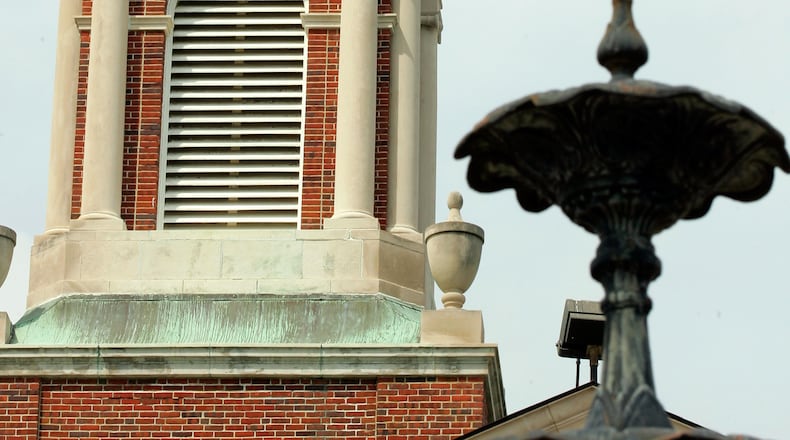Last week, city officials had placed the ordinance to repeal on the work session agenda for discussion Monday with a formal vote set for Nov. 28. Mayor Mark Messer said there were some legal challenges to Issue 1 that was brought to light and council wanted to evaluate its options.
Issue 1, which enshrined abortion rights and reproductive care as part of the Ohio Constitution, was approved by a majority of Ohioans in the Nov. 7 general election by a statewide final, unofficial vote of nearly 57% for to 43% against. The constitutional amendment goes into effect on Dec. 7.
Councilwoman Kristen Eggers, who made the motion to table, said, “This just happened. We tabled it so we can have some time to evaluate our options.”
Last week, City Attorney Mark Yurick said it was pretty clear that the ordinance is in conflict with the constitution.
“I don’t see how the city can maintain an ordinance to make abortion difficult if it’s now constitutional,” he said. “Council can’t support something that’s unconstitutional.”
Following Monday’s meeting, Yurick told the Dayton Daily News that “council has a lot of questions about procedure and were made aware of the option to rescind. They want to consider their options and evaluate potential risks and consequences.
Yurick said there are various advocacy groups that are considering a possible challenge to Issue 1, despite voter approval.
Lebanon was the first city in Ohio and 29th in the nation to become a Sanctuary City for the Unborn in May 2021. The ordinance that was adopted divided the city. There are no clinics or providers that perform induced abortions in Lebanon or in Warren County. City officials at the time also said they wanted to prevent the possibility of an abortion clinic being located in Lebanon. Mason was briefly a Sanctuary City for the unborn but that was repealed after a new city council members were elected.
The ordinance, which was adopted before the U.S. Supreme Court struck down Roe v. Wade, initially included language stating it is the city’s position that human life begins at conception and that abortion is a murderous act of violence.
The Sanctuary City for the Unborn ordinance made it a misdemeanor to provide or aid an abortion within city limits, which includes providing money, transportation or instructions for an abortion.
In May 2022, a day after Lebanon marked the first year of its controversial “Sanctuary City for the Unborn” ordinance that banned abortions, city officials agreed to a stipulation not to enforce a section of the ordinance criminalizing those who assist people in accessing abortion care.
In September 2022, council voted to repeal and replace that ordinance with one that is somewhat less restrictive and was in compliance with the ruling of the U.S. Supreme Court in the Dobbs v. Jackson Women’s Health Organization decision that overturned Roe v. Wade.
Council replaced the previous ordinance to include a required new legal framework to include a “rational basis” in local laws to be in compliance with the Dobbs ruling.
The new ordinance removed previous provisions that criminalized providing money or assistance to anyone seeking an abortion even if the abortion took place outside of the city limits. The prior ordinance also banned providing advice and information to advice to women on how to perform home abortions.
Mark Lee Dickson, executive director of Right to Life East Texas and the Sanctuary Cities for the Unborn movement, was also in Lebanon to meet with city council members. The anti-abortion activist said Ohio Issue 1 has to work within the federal Comstock Act that was adopted in 1873.
“(The Comstock Act) is a de facto federal abortion ban,” Dickson said. “If this was enforced, it would stop abortion in every state in America.”
That law originally banned the mailing of articles or things “designed, adapted, or intended for producing abortion, or for any indecent or immoral use,” and in a separate section, describes its prohibition as being on “any drug, medicine, article, or thing designed, adapted, or intended for producing abortion.”
Over the years, Congress has removed sections of the Comstock Act that prohibited the mailing of lewd materials and contraceptives, but the abortion ban was not removed because of the Roe v. Wade decision overriding it,” Dickson said.
About the Author

